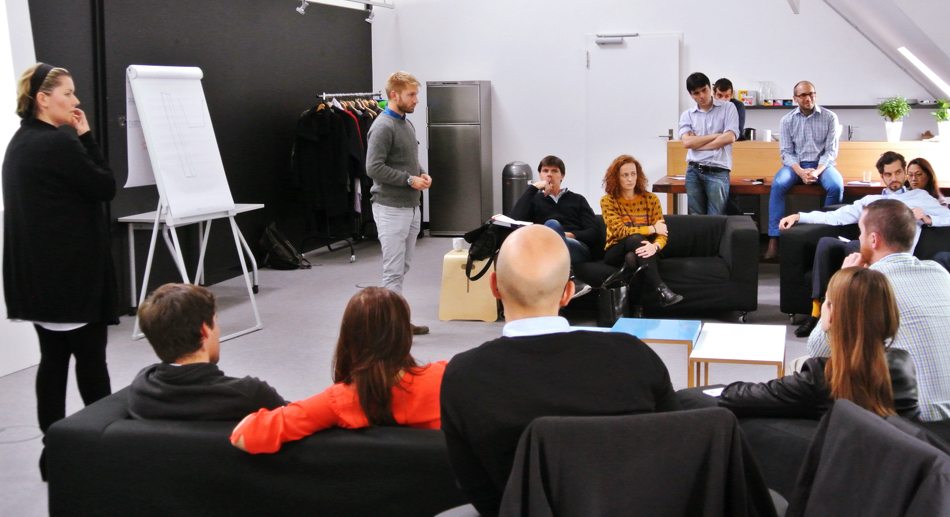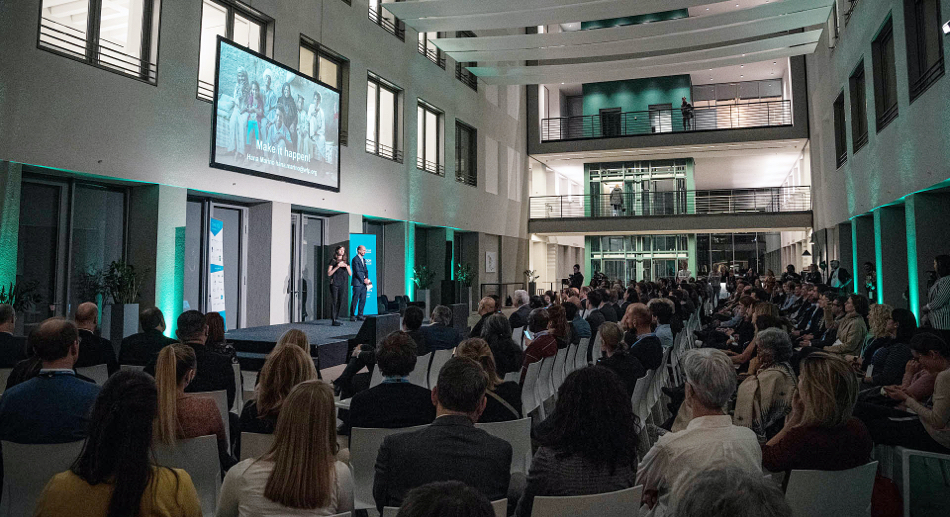Who we are
About us
Based in Munich, Germany, the Innovation Accelerator provides WFP operations, entrepreneurs and start-ups with funding, hands-on support and access to WFP’s global operations. WFP is leveraging unprecedented advances in digital innovation — such as mobile technology, artificial intelligence, blockchain and new business models — to transform the way it serves vulnerable communities across the world, with the Innovation Accelerator supporting every step of the way.
Based in Munich, Germany, the Innovation Accelerator provides WFP operations, entrepreneurs and start-ups with funding, hands-on support and access to WFP’s global operations. WFP is leveraging unprecedented advances in digital innovation — such as mobile technology, artificial intelligence, blockchain and new business models — to transform the way it serves vulnerable communities across the world, with the Innovation Accelerator supporting every step of the way.
in
from
with
$117.8 million
3.7 million people
reached in 2020
Where we work
WFP Innovation Accelerator
Innovation Hubs
Our path to scale
Innovation has been part of the WFP DNA since it organized the first humanitarian airlifts in 1962. These days, WFP’s use of innovation to deliver its mandate ranges from the application of artificial intelligence in satellite imagery to predict emerging crises and plan humanitarian responses, to setting up digital cash-based transfers that help families buy foods and support the local economy.
When the Innovation Accelerator was established in 2015, scaling innovations was the ultimate goal: to achieve impact for the most vulnerable populations worldwide. To get there, the Accelerator also had to undertake its own path to scale. From an initial team of five people hosting a bootcamp in a single room, the Accelerator quickly grew to encompass a team of over 50 people hosting at least four regular bootcamps annually.


Here are some of the ways the Innovation Accelerator has grown and further developed the foundation for its work over the past five years:
- Since 2018, the WFP Innovation Accelerator’s portfolio has included innovation services for other United Nations agencies and non-governmental organizations (NGOs), expanding our focus from the SDG 2 of Zero Hunger to tackling a multitude of interconnected SDGs.
- This year, the WFP Innovation Accelerator scaled up even further with the expansion of our Innovation Community, which launched our first Regional Innovation Hub for East Africa hosted in WFP’s Regional Bureau in Nairobi, Kenya.
- We also established the WFP Innovation Champions Community, where WFP staff members from around the world come together to be agents of change, driving innovation within WFP and accelerating solutions for hunger.
- Finally, we established a dedicated Knowledge Management (KM) pillar to our work, ensuring that we are also sharing the hard-earned lessons along the way.
Enablement
Programme
Programme
Bootcamps
Sourcing
Innovations
The year unlike any other
COVID-19 has shattered lives and livelihoods across the planet, making it harder to reach the Zero Hunger target by 2030. In low- and middle-income countries where WFP operates, 272 million people face acute hunger. That is a staggering 82 percent increase from the pre-COVID period. Sustained lockdowns are disrupting agricultural activities, food supply chains, jobs, and remittances. All of this is a recipe for disaster for countries whose food security is already undermined by conflict, displacement and climate change — primary drivers of hunger. The pandemic’s fallout is expected to continue through 2021, aggravating vulnerabilities in food systems worldwide and pushing more people to rely on food assistance.
Now, more than ever, innovation is imperative.
How innovation becomes more important than ever in this kind of crisis
First Fully-Virtual Innovation Events
Pivoting - Remaining Flexible
Our ambitious
future
Our ambitious
future
The first five years of the WFP Innovation Accelerator were focused mainly on establishing our core programmes and building solid relationships with our partners. The next five years will cast an eye towards adopting lessons learned to improve the way we work and share our knowledge so that we can further expand our reach. By the end of 2025, we aim to positively impact the lives of 15 million people. To do this, we intend to continue our overarching goals for the next five years , including:
- Saving lives, changing lives through innovative products, services and projects supported by the WFP Innovation Accelerator.
- Increasing our geographical reach by expanding products, services and projects supported by the Accelerator to help operations in all WFP Country Offices and Regional Bureaus.
- Strengthening national capacities by mainstreaming innovative products and services supported by the Accelerator into the national systems and processes of at least 50 national governments and/or institutions.
- Broadening partnerships and cross-sectoral collaboration by establishing at least 50 bilateral and multi-stakeholder partnership agreements with key actors in the private sector, academia and research institutions, media, WFP and the larger humanitarian and development community.
- Achieving a Return on Investment (ROI) by raising US$ 200 million from direct donations, revenues from Accelerator operations, and external funds raised through supported projects.
We intend to empower local innovation systems in areas where the need is greatest and where there is emerging innovation capacity. We will continue our close collaboration with other WFP divisions and WFP Country Offices, aiming to establish three more innovation hubs on a regional level in order to sustainably foster local innovation ecosystems.